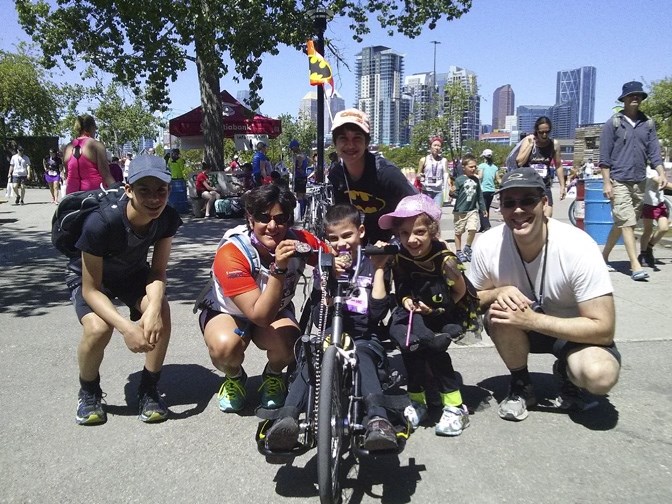Federal census data released last week shows more immigrants are choosing to live in the Foothills.
In Okotoks, 3,695 immigrants call the town home, with 860 arriving between 2011 and 2016. They join the 1,410 who moved to the region between 2001 and 2010. Meanwhile, 2,770 immigrants have settled in the MD of Foothills, with 285 arriving between 2011 and 2016. Almost half of the MD’s total immigrant population (1,215) arrived in the area prior to 1981.
“There hasn’t been a huge jump, but there’s been a steady increase in the past three years,” said Nancy Risdon, settlement co-ordinator for Foothills Community Immigrant Services (FCIS) Okotoks.
According to the Stats Canada census, both Okotoks and the MD of Foothills have a significant number of immigrants from the UK. In Okotoks, 1,490 of the town’s immigrant population herald from the UK, and 690 in the MD.
Melanie Arbib and her family made the move to Canada from the UK in 2008. They were torn between the Foothills and the Springbank area. A gentle nudge from a relative saw them settle on an acreage outside of Okotoks. Their children attend school and take part in extra-curricular activities in town.
The two main factors that went into the Arbibs’ decision were health care and crime.
“We actually lived in a really nice place, but the crime was getting worse, and we ended up being the victims of white collar crime ourselves,” said Arbib. “We wanted a place we could raise our children and let them actually be children and have a childhood and go to the cinema without having me sit in the back row with a baseball cap hiding, keeping an eye on them.”
In addition, she said Canada offered more opportunities for her children to be active rather than sitting in front of the television all day, she said.
The Arbibs had three children – aged five, three and 11 months at the time – but she said they’d always wanted four. After her third child was born with cerebral palsy she vowed never to have another child in England again.
“We felt that the medical system could have done more to prevent that from happening, and they just ignored when I said I wasn’t feeling well with him,” said Arbib. Their fourth child was born after the family settled in Canada.
It wasn’t difficult to adjust to life in the country, she said. They met people through swimming lessons and other extra-curricular activities the children were involved in, she said.
By the end of the first summer, she said they had found a lot of friends and were settling into their new lives. One of the best things about life in Canada is the opportunities it has afforded their son, Jason, with his cerebral palsy, she said.
“There are just so many more opportunities in Canada for people with special needs, physical or mental,” said Arbib. “Jason does hand-cycling, he’s playing sledge hockey, he goes skiing, he plays wheelchair basketball, he does a triathlon.”
She’s found the town to be very accommodating, she said.
“The community is a very nice, inclusive community,” said Arbib.
Though Okotoks and the Foothills welcome many immigrants, it’s not as easy for all families to adjust to a new lifestyle.
Risdon said some people arrive in Canada with families that have already immigrated or jobs lined up and ready to go, and aren’t looking for help adjusting. However, the FCIS office helps about 10 to 15 per cent of immigrants who arrive in Okotoks and area, she said.
“We provide individuals and families support services for newcomers to Canada,” said Risdon. “We do support in the schools in Okotoks as a liaison between teachers and families and encouraging parents and families to be involved with the school activities and in their child’s education.”
A lot of the help has to do with overcoming cultural differences, and assisting people in bridging the gap between their homeland and their new country, she said.
One of the more popular programs is an English conversation circle, which is volunteer-driven and helps people get past language barriers, she said.
Another effective program is Community Connections, which matches volunteer mentors with newcomer families who need a little help adjusting to their new community, learning Canadian social norms or developing language skills, she said. FCIS is also a referral agency, she said.
“People will come to us with all sorts of questions – looking for a job, looking for housing, family support, things like that,” said Risdon. “What we’ll do is refer them to the appropriate organizations within Okotoks as much as possible for support. We’re their connection to the community.”




